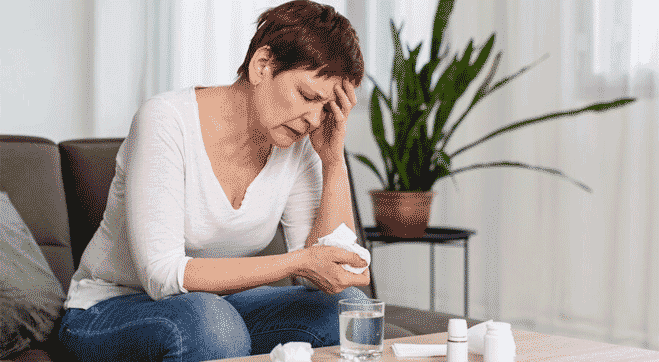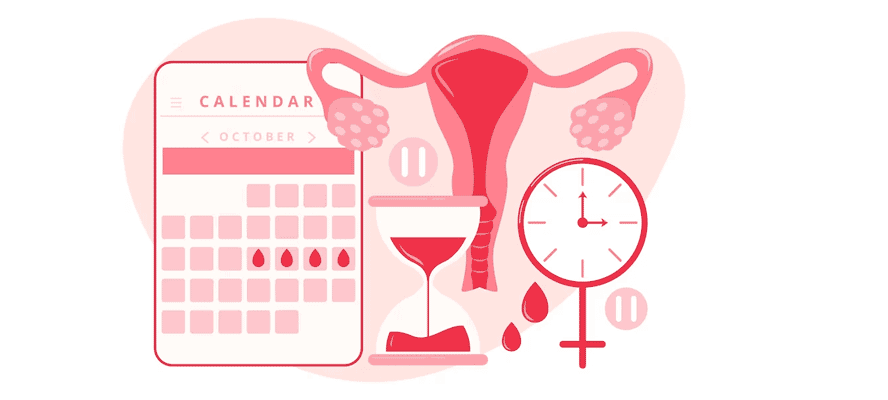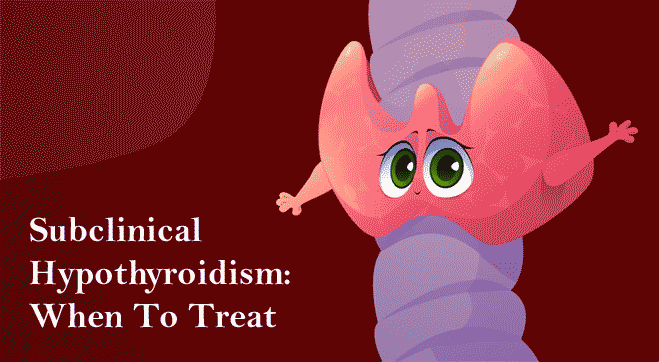What Is Hormonal Changes In Women?
Wondering why hormonal imbalance occur in females? Well, Hormones, the chemical messengers, play a pivotal role in a woman’s overall health and well-being. However, hormonal imbalances can happen when the delicate hormone balance in a woman’s body is disturbed, irrespective of the exact cause. These imbalances may also manifest as symptoms of hormonal imbalance in women and other health hazards, affecting a woman’s physical and emotional health.
Hormonal imbalance in women can impact mainly the hormones, such as oestrogen, progesterone, testosterone, thyroid hormones, and other hormones in a woman’s body. These female hormones impact menstruation, reproduction, metabolism, and mood, and any imbalance of these hormones can lead to several health hazards.
What Conditions Are Caused By Hormonal Imbalances In Women?
Health issues that women with hormonal imbalance may experience include:
PCOS
Polycystic ovary syndrome (PCOS), also known as Polycystic Ovarian Disease (PCOD), is a prevalent hormonal imbalance led condition that affects women of all ages. PCOS has also been linked to gestational diabetes in women. In some chronic instances, PCOD may lead to ovarian cancer in women though adequate research and evidence don’t back this fact up completely.
Women of all ages are recommended to undergo a PCOD Test if they experience symptoms, such as:
- An irregular menstrual cycle that impacts a woman’s physical and mental well-being
- An excessive amount of ovarian cysts might lead to ovarian cancer in the future or cause severe pain and discomfort
- The inability to conceive naturally, even after multiple attempts
Did you know:
- PCOS affects approximately 7% of women during their childbearing age
- By the time women with PCOS reach the age of 40, more than 50% of them develop type 2 diabetes.
Menstruation Irregularities
Inconsistent menstrual cycles can be brought on by hormonal abnormalities and might be unpleasant, heavy, or untimely. Effects on irregular periods on the body may vary from woman to woman. Mostly caused due to hormonal imbalance in women, this can lead to painful periods, heavy flow and other challenges that can impact the woman’s physical, cognitive and emotional experience. Heavy or prolonged bleeding, absent periods (amenorrhea), and unpredictable cycles are all potential outcomes of hormonal disruptions.
Common Menstrual Irregularities:
- Amenorrhea (absent menstrual periods):When a woman doesn’t get her period by age 16 or stops getting it for at least 3 months while not pregnant.
- Oligomenorrhea (infrequent menstrual periods):Periods occurring more than 35 days apart.
- Menorrhagia (heavy menstrual periods): Menorrhagia refers to a medical condition characterized by heavy or excessive menstrual bleeding.
- Prolonged menstrual bleeding: Bleeding exceeding 8 days regularly.
- Dysmenorrhea (painful periods): Includes severe menstrual cramps.
Additional Menstrual Irregularities:
- Polymenorrhea (frequent periods):Menstrual periods happening less than 21 days apart.
- Irregular menstrual periods with cycle-to-cycle variation of more than 20 days.
- Shortened menstrual bleeding lasting less than 2 days.
- Intermenstrual bleeding (spotting): Bleeding episodes occurring between periods.
Menopause and Perimenopause:
Different women experience menopause at different ages, during which their progesterone and oestrogen levels tend to fall. Hot flashes, heavy sweating mostly in the night, mood swings, dry vagina as well as vaginal smells are among the hormonal imbalance symptoms in females.
Thyroid Issues
Hormonal imbalance can affect the thyroid gland’s ability to function, and lead to thyroid disorders, such as hypothyroidism or hyperthyroidism. These disorders impact metabolism, energy levels, and overall well-being. Symptoms can range from weight changes and fatigue (hypothyroidism) to anxiety and rapid heart rate (hyperthyroidism).
Premenstrual Syndrome
Mood swings, bloating, and breast pain are signs of premenstrual syndrome, which hormonal changes can bring on before a period. While this can not necessarily be treated as hormone imbalance in women, it can be considered more like a temporary fluctuation in hormones.
Signs And Symptoms Of Hormonal Imbalance In Women
Recognising below mentioned hormonal imbalance symptoms to receive the proper diagnosis and treatment is essential. Side effects of hormonal imbalance may manifest in various signs and symptoms such as:
- Irregular menstrual cycles
- Unexplained weight gain or weight loss
- hormonal acne breakouts
- Hair loss or excessive hair growth
- Fatigue and lethargy
- Mood swings and irritability
- Sleep disturbances (Insomnia)
- Vaginal dryness
- Hot flashes, Night Sweats and Bromhidrosis
- Changes in libido
Causes Of Hormonal Imbalance In Women
The causes of hormonal imbalance in women include:
- Age and Menopause: By reducing oestrogen and progesterone levels, ageing and menopause can alter hormone levels.
- Lifestyle Factors: Poor diet, lack of adequate physical activity, and persistent stress can all put hormone levels in disarray.
- PCOS: Polycystic ovarian syndrome is a hormonal disorder that can cause an unbalanced level of insulin and testosterone.
- Disorders of the Thyroid Gland: Issues with the thyroid gland can prevent the equilibrium of thyroid hormones.
- Drugs: Several prescription drugs, including birth control pills and hormone replacement therapy, can cause hormone problems in females.
- Long-term health Issues: Diabetes and adrenal gland abnormalities can prevent the generation of certain hormones. Women with diabetic symptoms are recommended to get the glucose tolerance test done to ensure proper prevention/treatment measures.
By gathering deep insights into the cause of hormonal imbalance through female hormone tests, your healthcare provider can suggest a personalised treatment/prevention plan.
Diagnosis Of Hormonal Imbalance In Women
A detailed analysis of the symptoms, medical records, and physical evaluation is required to pinpoint reasons for hormonal imbalance. Common diagnostic methods include:
- Hormone Level Testing: Blood tests included in the female hormone test list can measure hormone levels, including those for thyroid, progesterone, and oestrogen.
- Ultrasound: In cases like PCOS, an ultrasound can look at the ovaries and check for cysts.
- Thyroid Function Tests: Thyroid Function Test that measure levels of thyroid hormone and thyroid-stimulating hormone can be used to diagnose underlying thyroid conditions that can be caused due to hormonal imbalances.
- Pelvic exam: The pelvis can be examined to check for any irregularities in the reproductive organs that might result in infertility and other reproductive health issues.
- Medical imaging: Tumours or other structural abnormalities affecting hormone-producing glands can be found using imaging techniques like MRI or PET-CT scans.
Treatment Of Hormonal Imbalance In Women
Wondering how to cure hormonal imbalance in females? The severity and underlying cause of hormone imbalances can help your healthcare provider determine the best course of treatment. options such as::
- Hormone Replacement Therapy: By raising levels of oestrogen and progesterone, HRT assists women with menopausal symptoms.
- Contraceptive Pills: Hormone-enhanced contraceptive pills can control menstrual periods and lessen PMS symptoms.
- Thyroid Medications: To treat hypothyroidism or hyperthyroidism, thyroid hormone replacement therapy is performed.
- Lifestyle Modifications: A healthy lifestyle with a balanced diet, regular exercise, and stress reduction can help with hormone balance.
- Drugs: Drugs can treat hormonal conditions like PCOS or diabetes.
If you are still wondering how to treat hormonal imbalances, do consult your doctor for an individualised treatment plan.
Natural Remedies For Managing Hormonal Imbalance In Women
Natural remedies for hormonal imbalance in females can assist in hormone imbalances in addition to medical therapy:
- Herbal supplements: Some herbs, such as black cohosh and chaste berry, have demonstrated promise in reducing PMS symptoms and other menopause-related problems.
- Essential Oils: In aromatherapy, essential oils, including clary sage or lavender, can elevate mood and encourage relaxation.
- Lifestyle Modifications: Maintaining a healthy lifestyle with a balanced diet, regular exercise, and enough sleep is important for hormone balance.
- Stress Reduction: Relaxation methods like yoga or meditation can help you manage stress and its hormonal consequences on your body.
Prevention Of Hormonal Imbalance In Women
Although some hormonal imbalances cannot be prevented, there are things women can do to support hormone balance and general health:
- Foods for hormonal imbalance in females: Incorporating foods rich in omega-3 fatty acids, leafy greens, and whole grains can help support hormonal health. Avoiding excessive sugar and processed foods may also contribute to hormonal balance.
- Exercise frequently to lower stress and promote hormonal balance.
- Breathing deeply, yoga, and meditation are stress-reduction exercises.
- Refrain from smoking and excessive drinking, as these behaviours might affect hormone levels.
- Monitor your hormone levels with frequent health checkups and a hormonal imbalance test to spot anomalies early.
Note From HealthcareOnTime
Unbalanced hormones can harm a woman’s general health and well-being. For a correct diagnosis and effective treatment, it is essential to be aware of the symptoms and seek medical attention as soon as possible. Hormonal balance and overall well-being can be maintained by living a healthy lifestyle and using natural remedies, even if hormonal imbalances occasionally happen unintentionally and are not avoided. Women’s well-being can be enhanced by actively controlling abnormal hormone levels.
Sources
Ref Links:
- https://www.mayoclinic.org/diseases-conditions/menopause/in-depth/hormone-therapy/art-20046372
- https://www.womenshealth.gov/menopause/menopause-basic
- https://www.health.harvard.edu/a_to_z/polycystic-ovary-syndrome-a-to-z
- https://www.womens-health-concern.org/help-and-advice/factsheets/polycystic-ovary-syndrome-pcos/











